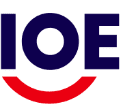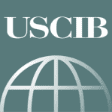2008 Engaging Business Forum Conference
2008 ENGAGING BUSINESS: ADDRESSING FORCED LABOR
Sponsored by the U.S. Council for International Business, the U.S. Chamber of Commerce,
and the International Organization of Employers in Cooperation with the International Labor Organization
Hosted by The Coca-Cola Company
One Coca-Cola Plaza
Atlanta, Georgia
February 20, 2008
Overview
To be successful, business needs to manage risk. These risks are not static. New ones can emerge at any time through the actions of companies themselves, their suppliers or other social actors. In companies, ranging from clothing to food processing; from steel to electronics, reputational and business damage is arising from allegations relating to forced labor, human trafficking and child labor.
The issue of forced labor is hardly new. It is the subject of widely ratified core Conventions of the International Labour Organization and is one of the principles of the 1998 ILO Declaration on Fundamental Principles and Rights at Work. Many company, sectoral and global codes of conduct, including the UN Global Compact, as well as International Framework Agreements and supplier contracts, reference forced labor. But until recently, relatively little sustained business attention has been given to addressing it.
With growing investment in and sourcing from developing country markets, business risk from forced and prison labor is increasing. Civil society and human rights groups, in particular, are now paying it more attention, often within the wider debate on human trafficking and child labor.
Forced labor is therefore, a significant risk, requiring immediate business attention. Yet, this issue is often misunderstood or minimized. What forms does it take? How can it be identified? How should it be addressed? The answers are not readily available.
This one-day meeting explored these questions, including a focus on experiences of companies that, independently or in coalition with others, are actively engaged in eliminating forced labor within their spheres of business. The meeting drew on the experience and knowledge of participants in helping to formulate a practical program for employers that can be used to identify forced labor, to provide means for its elimination and to give guidance on its remediation.
25th February
Time
Agenda
9:00 - 9:15 AM
1
Welcome and Opening Comments from The Coca-Cola Company&Meeting Overview and Objectives
Welcome from The Coca-Cola Company
Meeting Overview and Objectives
- Brent Wilton, Deputy Secretary General, International Organization of Employers(IOE)
- Ed Potter, Director Global Workplace Rights, The Coca-Cola Company
9:15 - 10:15 AM
2
Key Note Speakers – The Forced Labor Issue
“The Impact of the Forced Labor Issue on Business, in the context of current Labor and Human Rights Issues”
Moderator: Ronnie Goldberg, Executive Vice President, U.S. Council for International Business (USCIB)
- Christine Bader, BP & Advisor to John Ruggie, the Special Representative to the UN
Secretary General on Business and Human Rights - Roger Plant, Special Action Program Against Forced Labor, International LaborOrganization
- Donna E. Chung, Ph.D., Sandler, Travis & Rosenberg, and former Department of Labor Analyst on Child Labor, Forced Labor and Human Trafficking
10:15 - 10:30 AM
3
BREAK
10:30 AM - 12:00 PM
4
Forced Labor Case Studies—Innovative Approaches Against Forced Labor: What Works and Why?
Moderator: Robert Corcoran, Vice President, Corporate Citizenship, General Electric
Summary of Forced Labor Case Studies
John Morrison, Business Leaders Initiative on Human Rights
- Pig Iron and US Car Manufacturers
- China Prison Labor
- Textile Imports to the US from Jordan (Export Zones under the Bilateral TradeTreaty)Commentators
- David Schilling, Director, Interfaith Center on Corporate Responsibility
- Jorge F. Perez-Lopez, Executive Director, Fair Labor Association
- Adam Kanzer, Managing Director & General Counsel, Domini Social Investment
12:00 - 1:15 PM
5
Lunch – Guest Speakers
- “Governments Expectations of Business in Addressing Forced Labor” Amb. Mark P. Lagon, Director, Office to Monitor and Combat Trafficking in Persons, U.S. Department of State
- “Government and Business Synergies to Combat Forced Labor” Jeff Krilla, Deputy Assistant Secretary for Democracy, Human Rights, and Labor, U.S. Department of State
1:15 - 2:00 PM
6
Facilitated Table Discussions
Table Discussions: Focus on key questions regarding Forced Labor
- How has Forced Labor been addressed? Which business strategies have been effective in addressing Forced Labor? What challenges have you encountered?
- What tools/information do you consider relevant and useful to identify and combat Forced Labor?
- What role should employer/business organizations play to support the efforts of business in combating the issue of Forced Labor at a national/international levels?
Session facilitated by Jan Beaves, Group Human Resources Director, The Coca-Cola Company
2:00 - 2:15 PM
7
Table Discussion Report
2:15 - 3:15 PM
8
Implementing Business Strategies to Address Forced Labor
Moderator: Mike Eastman, U.S. Chamber of Commerce (USCC)
- Bonnie Nixon-Gardiner, Global Program Manager for Social and Environmental Responsibility Hewlett-Packard
- David Arkless, Senior Vice President, Corporate Affairs, Manpower International
Questions & Answers
3:15 - 3:30 PM
9
BREAK
3:30 - 4:30 PM
10
Engaging Business at the National and International Levels on Forced Labor&Comments, Q&A and Plenary Discussion
Engaging Business at the National and International Levels on Forced Labor
- Brent Wilton, IOE
- Ronnie Goldberg, USCIB
- Mike Eastman, U.S. Chamber of Commerce
Comments, Q&A and Plenary Discussion
- Discussion facilitated by Ed Potter and Jan Beaves
- Speakers serve as panel for discussion
4:30 - 5:00 PM
11



